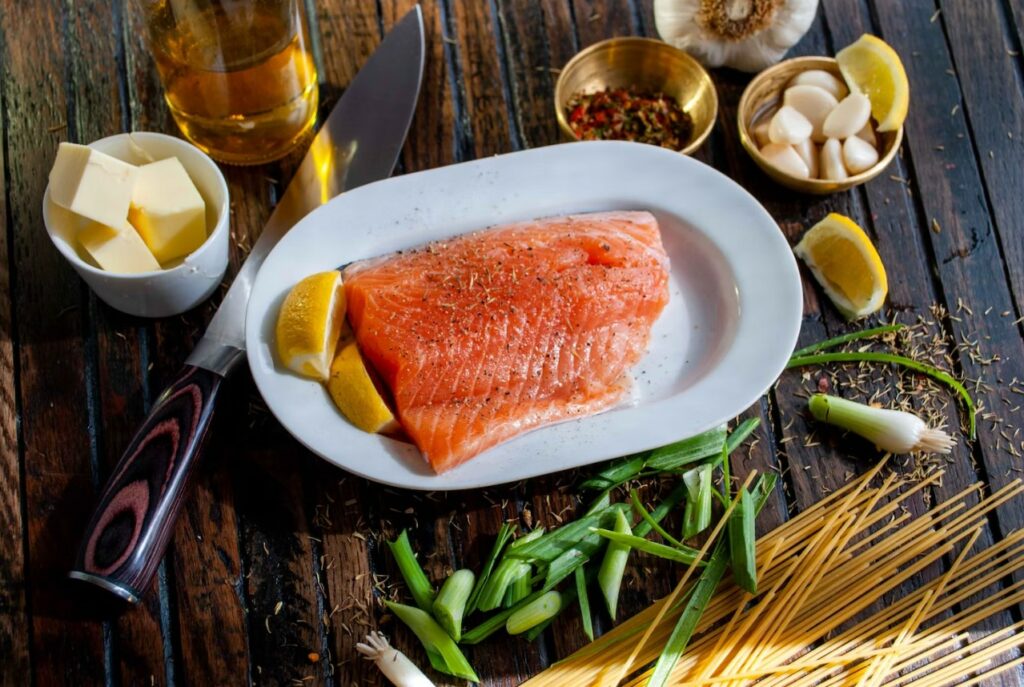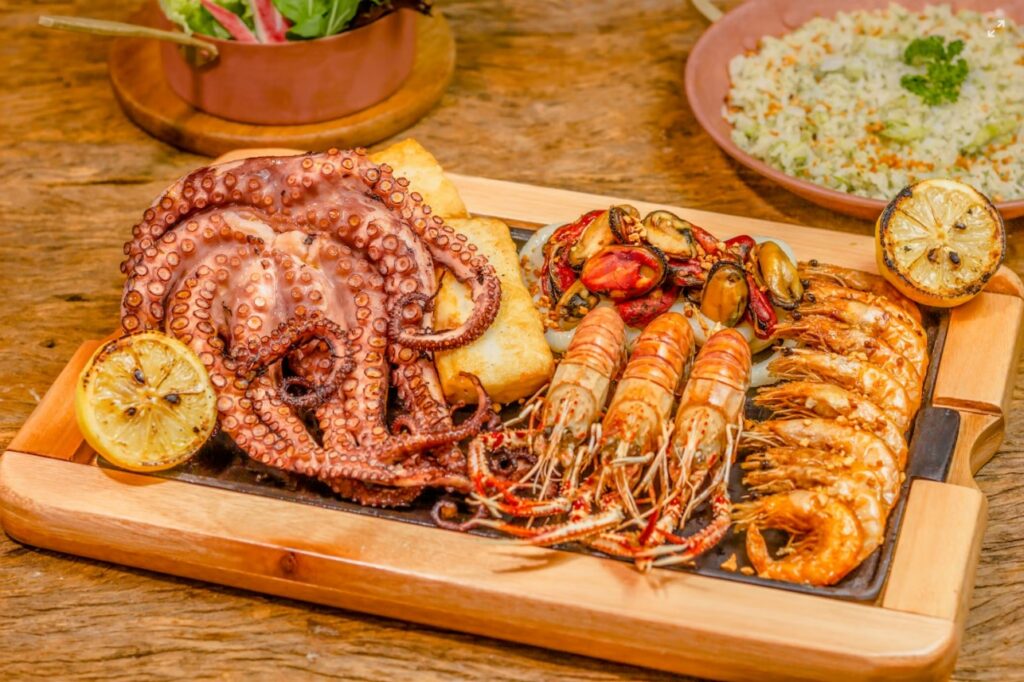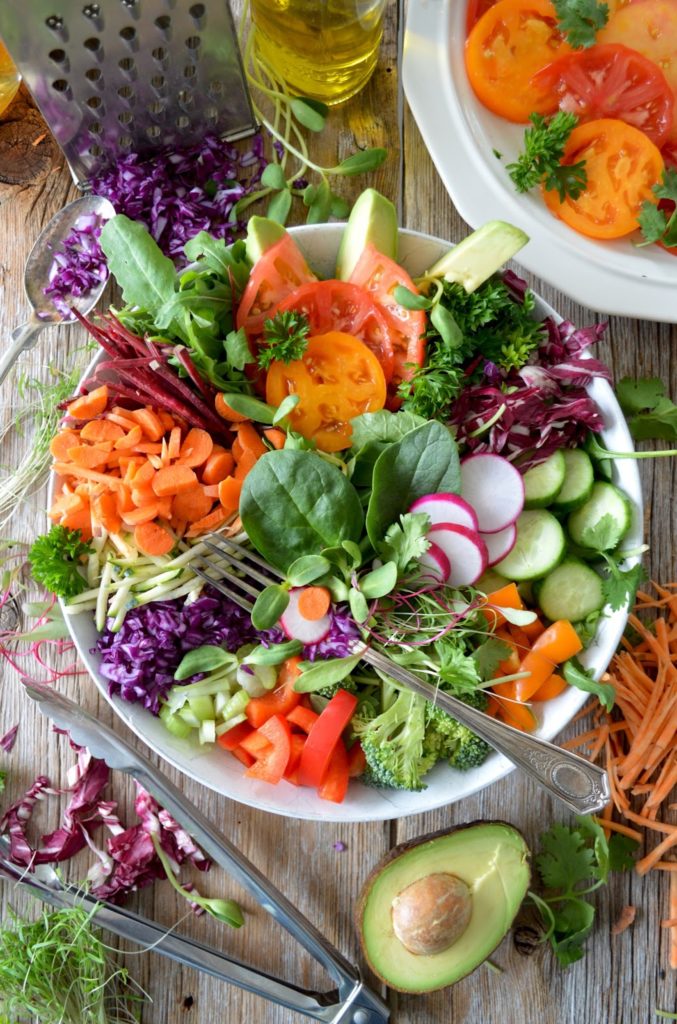A pescatarian diet is a good balance between a vegetarian and meat diet. As a mostly vegetarian diet, where one mostly consumes vegetables, fruit, grains, nuts and seeds, a pescatarian diet also incorporates the consumption of seafood as another source of protein. A pescatarian will include some seafood in their diet as a meat supplement, whereby a vegetarian diet does not include any meat at all. Both diets have many environmental and health benefits. Many vegetarians have actually started out on a pescatarian diet at the beginning as they found it to be a good transition away from meat.
As such a pescatarian diet is considered to have many health benefits and is considered as an alternative or transition diet to a vegetarian diet. Learn how to have a healthy pescatarian diet with these tips below.
What is a Pescatarian Diet?
A pescatarian diet is defined as a type of vegetarian diet with the addition of fish and other aquatic animals. A pescatarian diet mostly consists of vegetables, grains, pasta, oats, nuts, and fish. The Pescatarian diet allows for the inclusion of seafood, eggs and dairy. These food groups are typically excluded in vegetarian or a vegan diet. A Pescatarian diet allows for seafood as their main protein source.

It is worth noting that a pescatarian diet is not only an all-fish diet, but can include seafood. We see some pescatarians usually only include seafood in their meals 2 – 4 times per week. Most of their meals are strictly vegetarian. A pescatarian diet is most similar to a Mediterranean diet.
Mediterranean Diet:
A Mediterranean diet is defined as a diet that consists of foods that people in southern Europe, Greece, Italy, Portugal, and Spain typically eat. Foods that are often consumed include fresh fruit, vegetables, olive oil, seafood, grains, and nuts.
Reasons for adopting a Pescatarian Diet:
There are multiple reasons why one might choose a pescatarian diet. Some of the more common reasons include environmental concerns and personal health.
Good Health:
The most common reason for adopting a pescatarian diet is to improve your health. Fish is known as a good source of omega-3 fatty acids which are needed for healthy blood. Fatty acids are also important for brain development and health. Many people opt for a pescatarian diet when they are wanting to lose weight, improve their blood pressure and reduce their risk of heart disease.

The oils we get from consuming fish are also good for one’s skin and hair. These oils also aid in boosting the immune system.
Studies have found that red meats are high in saturated fats which can lead to a variety of health complications. Many dietitians do not recommend a full meat diet as the body needs a variety of vegetables, fruits, grains and seeds to function. Meat protein is difficult for the body to digest, and if one is going to indulge in a meat diet they should include lean meats like chicken and fish or eat red meats sparingly.
Being Ethical and Environmentally friendly:
Many people opt for a pescatarian diet for ethical and environmental concerns. It is well known that the meat industry is wreaking havoc on our environment. The maintenance and breeding of livestock for human consumption is the world’s largest user of land and resources like fresh water. From this ecological point of view, pescatarians have a lower carbon footprint.
If you opt for a pescatarian diet it is good to be aware of the source and double-check where the source of seafood comes from. Try to find a local fish shop, where you can discuss with the owner where the fish is caught and who supplies the store to ensure that you are consuming healthy and fresh seafood.
Pros of a Pescatarian Diet:
There are many benefits to adopting a pescatarian diet. Some of the most common benefits include:
Disease Prevention:
According to the National Library of Medicine many pescatarians have a lower risk of heart disease, strokes, diabetes, and high blood pressure as compared to full meat eaters. This is due to two reasons: one reason being that the omega-3 fatty acids in fish products help in keeping arteries clear, they also help with brain development and function. The second reason is that many illnesses are a byproduct of an unhealthy meat-dense diet. By eliminating red meat and other meat from your diet you lower your risk of disease.
Transitional stage to Vegetarian diet:
Some people find that eliminating all meat from their diet is difficult to maintain. The Pescatarian diet allows you to still get protein from seafood and is easier to manage. A pescatarian diet is more flexible with the inclusion of some sources of protein such as fish or seafood. There are more meal preparation options available when choosing a pescatarian diet, many people find that this diet is, therefore, easier to follow and maintain in the long haul.
Promotes a Healthy Weight:
By replacing meat-based meals with fish-based meals you will be cutting calories that are found in red meat. Fish meat is lean meat and high in protein which supports the production of muscles. A pescatarian diet could help you maintain a healthy weight.
What food can you eat on a Pescatarian Diet?
A pescatarian diet has a bit more room for flexibility than a vegetarian or vegan diet. A pescatarian has more options when it comes to food choices as seafood includes more than just fish. Pescatarians have a choice of all vegetarian foods as well as a wide variety of seafood:

Seafood:
There is a long list of possible seafood that pescatarians typically consume. Below are some of the more popular options.
- Mussels
- Oysters
- Crab
- Fish – many different species such as tuna, salmon, snoek, etc.
- Lobster and crayfish
- Prawns and Shrimp
Other foods to include in your diet:
There is a long list of other foods that are important to consume to make sure you have a healthy and sustainable diet. The key here is balance, a balanced diet is a healthy one. You should experiment with eating different types of vegetables, fruits, grains, and nuts.

All the vitamins and minerals that your body needs come from the foods you eat. In a pescatarian diet, you get most of your protein from seafood such as fish, however, there are other important vitamins and minerals that fruits, vegetables, nuts, and grains can provide you. Other foods to add to your diet include:
- Tofu
- Milk
- Eggs
- Cheese
- Fruit
- Vegetables
- Beans
- Nuts and seeds
- Whole grain pasta, bread, and brown rice
- ‘Other’ grains, such as quinoa and buckwheat
Cons of a Pescatarian Diet:
As with any diet change, there are precautions to take heed of. The pescatarian diet requires consuming seafood, and although seafood is extremely healthy and good for you, it is also high in mercury.
Seafood May Contain mercury:
Seafood may contain trace amounts of mercury. Some fish have higher mercury levels compared to others. It is important to learn what fish have high mercury levels and which do not, as mercury is absorbed into the bloodstream during digestion. If you consume too much mercury by eating fish too often or often consuming fish that is known to be high in mercury you put yourself at risk of damaging your central nervous system.
Takeaways:
A Pescatarian diet is a great way to reduce your meat consumption, care for your environment, and maintain your health. With any new diet, it is important to take note of how your body feels. If you feel healthy and show no signs of illness then stick with it. The internet is also a great place to look up recipes to make your meals tasty and unique.
